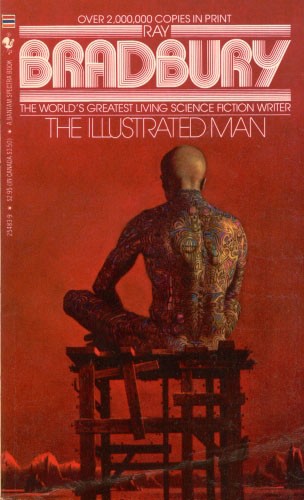Farewell, Ray Bradbury

Ray Bradbury, one of the most prolific and talented SF writers of the twentieth century, has passed away today at the age of ninety-one. There were those (jerks) who considered him to be overly popular and accessible and hopelessly middle-brow, and they were dead wrong.
Bradbury was about paranoia, and the twistiness and hope and treachery of children, and the cruelty of adults, and the loneliness of Earth, even if there might be other, lonelier planets coming slowly into our reach. He was post-war and pre-apocalypse. His characters were on fire, on the lam, and gathering rocks. He and Shirley Jackson both understood about crowds. (Read Shirley Jackson today, too, please.)
There’s The Martian Chronicles, of course, and there’s my favourite collection, The Illustrated Man, and there’s Dandelion Wine, and there’s Something Wicked This Way Comes.
And, yes, there’s Farenheit 451, which is excellent, but for my money, a polemical novel, however great, will never convey the same weight of emotion as a collection of strange, murky short stories. Bradbury was better off letting his Martians do his talking, or a young girl who missed the one day of summer, or a hideous tattooed stranger by the fireside, or an electric grandmother. The Cold War metaphors, oddly, seem somehow less dated today, because our literature is no longer immersed in them. The writing is good, but the stories themselves are better. You can tell them around a campfire, like my father used to with The Illustrated Man. That’s what stories are for.
All good science fiction is about children, one way or another, because when you are a child, the world around you is Mars. Bradbury understood that. He understood, too, that the aliens are frightening not because they are alien, but because they are too familiar.